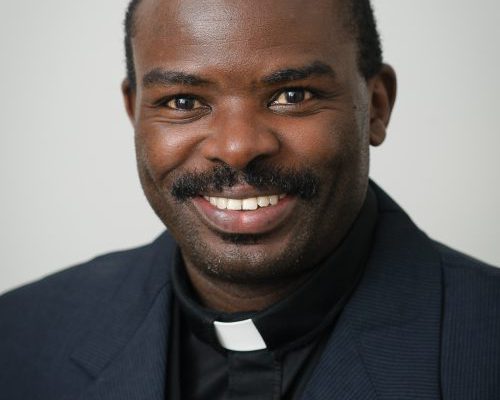 Portuguese/French
Portuguese/French
By Fr. Alexander Wainaina, SJ
Lent comes to us as a special moment of spiritual growth. It is a time to reflect on God’s work in our lives and on our day-to-day activities, especially where we interact with or affect other people. Hence it is a moment of intentional activities that are deliberately desired to focus our attention towards certain goals. During Lent, the Church calls us to reflect on the unconditional love of God that made Jesus, the innocent one, willingly die for us who are sinful. As we prepare for the great Paschal mystery, we get the invitation to intentionally and purposefully take up a lifestyle of reciprocating God’s love by loving God and our neighbors. While God is happy to receive obedience, honor, praise and glory through our words and actions, our neighbor benefits directly from any concrete acts of generosity and encouragement, that is, actual corporal works of mercy.
The ashes applied on our foreheads on Ash Wednesday mark our sorrow for sin and our desire for repentance; however, it is the life we live in the Lenten period that represents the actual focus of the call of God through prophet Joel for us to rend our hearts and not our garments (Joel 2:13). It is a time for us make up for the moments we have fallen short of reciprocating God’s love, hence a moment to practically show love to God and to our neighbor. When Jesus was asked who “my neighbor” is, He was quick to point out a person in the community who needed help and to present the Good Samaritan as a worthy example for us to follow. We have people in our community that have been hurt in many ways, not by robbers on the Jerusalem-Jericho route (Lk 10:30), but by poverty, illness, or other challenges. One group of such neighbors is the people living with HIV/AIDS (PLWHA). As I enter into Lent, do I hear the voice of Jesus telling me to be proactive like the Good Samaritan (Lk 10:37)? And do I hear the voice of Jesus saying that almsgiving should not be a publicized event but a secret action that God alone should see and reward (Mt 6:4)?
We live in a world that has many examples of acts of generosity. Often, antiretroviral medications (ARVs) are given freely to those who need them, and a lot of the material support to PLWHA is generously given just like alms. Similarly, the Lenten call to give alms is eventually for the transformation of the lives of God’s people. Lent is a moment to do good without publicity for the glory of God. Many PLWHA suffer stigma, or the possibility of stigma, and hence prefer to keep their status private. Just as Jesus told His listeners to keep their almsgiving, fasting, and prayer private, the same secrecy needs to be applied to the good work that each one does towards alleviating the pain of PLWHA. This charity need not be limited to material items; it certainly includes visiting a needy person, saying kind words to and about other people, offering a prayer for another person, offering opportunities to those who are marginalized or disadvantaged, and advocating for the welfare of the weak.
I have met many PLWHA who are very grateful to the people and organizations that have helped them, given them hope, linked them to care, or even given them psychosocial help. Some had been rejected by their own families but through various generous associations, they have found “new families” of generous people that have supported them. Those charitable groups include the people that have followed the message of prophet Joel by opening their hearts and not garments, for they are able to accept “the other” who looks different or is needy. May God grant us the grace to willingly open our hearts and manifest such noticeable charity, as the fruit of the fasting and prayer that we do in secret during Lent and even beyond.
Fr. Alexander Wainaina, SJ, who works at St. Joseph the Worker Parish Kangemi, and at the Health Center attached to the parish.


 Portuguese
Portuguese